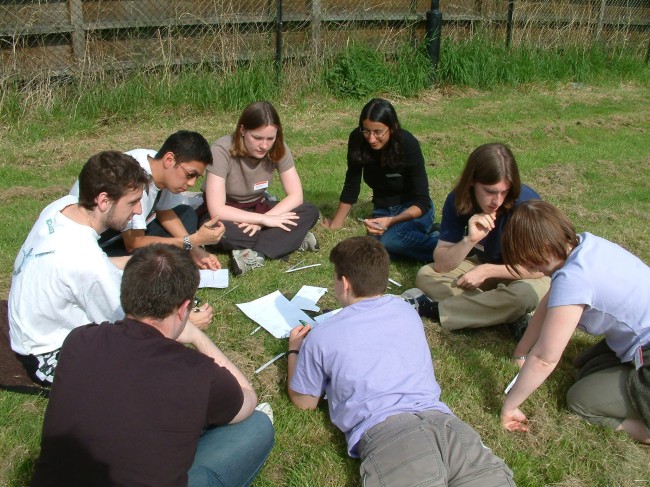Your current research may be your all-consuming focus at the moment, but it is likely that you will move on in terms of both location and research remit before long. Thinking beyond your immediate environment now will help you to plan your future in research.
Original research – the kind that gets funded – can be as a result of ‘individual creativity’, but it is also defined as a new combination or connection between ideas – the result of positive collaboration. This idea is explored further in ‘The Creative Researcher’ booklet, part of the Vitae Researcher booklet series, which can be found at: https://www.vitae.ac.uk/vitae-publications/guides-briefings-and-information/vitae-researcher-booklets
When you reach a certain level of seniority the value of international collaborations is perhaps more obvious, but for early career researchers a regional network can be key to your next funding step. A recent blog post from The Researcher Whisperer included a telling quote:
“I was listening to a wise old researcher the other day when she said:
International networks are lovely, but it is your national network that will get you funded … we don’t often talk about the importance of building a local network.”
Some practical reasons for networking to support future collaborations:
- Funding opportunities are increasingly inter-disciplinary and across institutions. As just one example, RCUK has six priorities for funding which draw across the spectrum of academic disciplines and EXPECT collaboration to address the priorities.
- REF and Impact. With ‘impact’ set to have an increasing place in the REF, wider networks can be invaluable in increasing your research profile in new areas. Impact also looks increasingly at collaborative research with industry and the public sector.
Vitae’s training programme on ‘The Collaborative Researcher’ includes exercises focusing on how to approach planning for networking and collaboration. In considering how ready you are to network effectively, how easily and succinctly could you answer the following questions to someone from outside your area of research?
- What’s the focus of your current research/area of research interest?
- What are your plans for developing/disseminating your work?
- Do you have any ideas or opportunities for collaborating on future research?
Or, to what extent could you respond to these points positively about your research?
Provide clarity – could you or someone in your department (not your supervisor) describe your research in simple accurate terms?
How visible are you? – Does your name or work come up in a web search for your research topic?
Translate – Have you described your research in interesting and relevant terms to someone from a different faculty in the last 6 months?
Be interested – Do you make a habit of talking to other researchers about their work and do you find them interesting?
Create opportunities – Can you think of three possible applications for your expertise outside your current project … do you know where to start looking?
Tune in – What do you think the main research questions will be in your field in five years time … how would you know?
The Midlands Research Staff Association (MidsRSA) is building on its mailing list of 100+ research staff to set up a self-sustaining forum for networking to discuss shared issues and explore future collaborations. If you’d like to know more, or join the MidsRSA please contact midlandshub@vitae.ac.uk
If you’d like to find out more about the national Research Staff Association (UKRSA), visit: https://www.vitae.ac.uk/communities/uk-research-staff-association





